
The Campeonato Nacional de Liga de Primera División, commonly known simply as Primera División in Spain, and as La Liga in English-speaking countries and officially as LaLiga Santander for sponsorship reasons, stylized as LaLiga, is the men's top professional football division of the Spanish football league system. Administered by the Liga Nacional de Fútbol Profesional, it is contested by 20 teams, with the three lowest-placed teams at the end of each season being relegated to the Segunda División and replaced by the top two teams and a play-off winner in that division.

Astor Pantaleón Piazzolla was an Argentine tango composer, bandoneon player, and arranger. His works revolutionized the traditional tango into a new style termed nuevo tango, incorporating elements from jazz and classical music. A virtuoso bandoneonist, he regularly performed his own compositions with a variety of ensembles. In 1992, American music critic Stephen Holden described Piazzolla as "the world's foremost composer of Tango music".
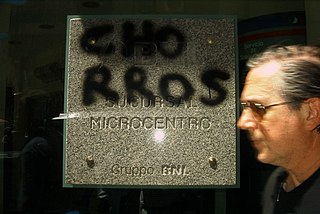
Lunfardo is an argot originated and developed in the late 19th and early 20th centuries in the lower classes in Buenos Aires and from there spread to other urban areas nearby, such as the Greater Buenos Aires, Rosario and Montevideo.
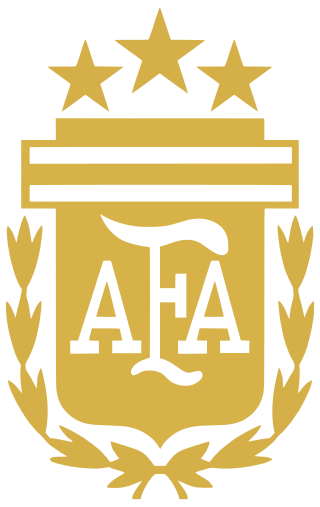
The Argentina national football team represents Argentina in men's international football and is administered by the Argentine Football Association, the governing body for football in Argentina.
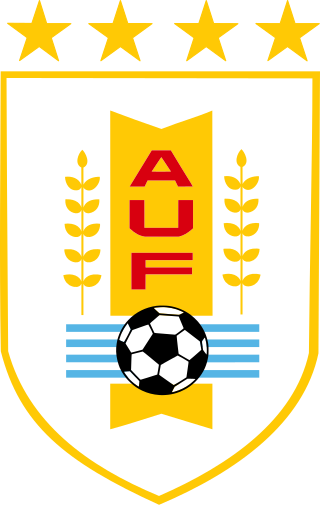
The Uruguay national football team represents Uruguay in international football, and is controlled by the Uruguayan Football Association, the governing body for football in Uruguay. The Uruguayan team is commonly referred to as La Celeste.
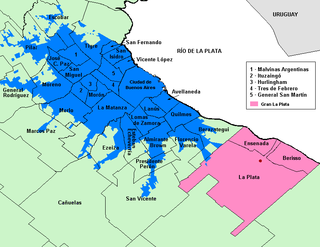
Cocoliche is an Italian–Spanish contact language or pidgin that was spoken by Italian immigrants in Argentina and Uruguay between 1870 and 1970. In the last decades of the 20th century, it almost completely disappeared, with its vestiges being found in Lunfardo, which in itself was an influence to the Rioplatense Spanish variety.
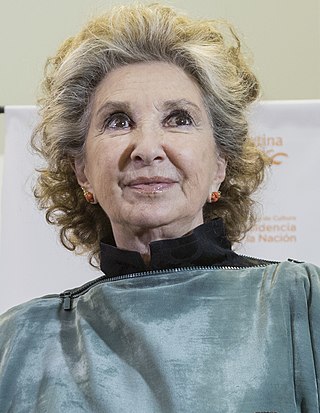
Norma Aleandro is an Argentine actress. She is considered one of the most celebrated and prolific Argentine actresses of all time and is recognized as a cultural icon in her home country.

Fernando Ayala was an Argentine film director, screenwriter and film producer of the classic era. He is widely considered one of the most important Argentine film directors and producers in the history of the cinema of Argentina.

Enrique Cahen Salaberry was a prolific Argentine film director whose career in the Cinema of Argentina as a movie director spanned five decades.

Italian Argentines are Italian-born people or non-Italian citizens of Italian descent residing in Argentina. Italian is the largest ethnic origin of modern Argentines, after the Spanish immigration during the colonial population that had settled in the major migratory movements into Argentina. It is estimated that at least 25 million Argentines have some degree of Italian ancestry

Yo también tengo fiaca is a 1978 Argentine sex comedy film directed by Enrique Cahen Salaberry. The film, produced by Hector Bailez, is based on Ricardo Talesnik's successful 1967 play of the same name and stars Susana Giménez and Juan Carlos Calabró as a middle-aged middle class couple committing infidelity.
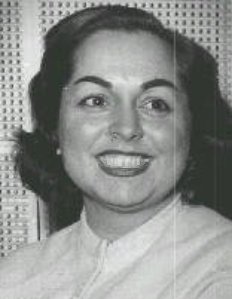
Nélida Dodó López Valverde better known as Nelly Beltrán was an Argentine actress. She appeared on the radio from the age of 10 and in 85 theatrical performances, 48 films and 3 dozen television shows between 1953 and 1996. She won a Martín Fierro Award as Best Comic Actress for her television work on La hermana San Sulpicio; participated in the film Pajarito Gómez which won the Best Youth Film award at the 15th Berlin International Film Festival; won a Konex Foundation Award; and was honored by the Argentina Actors Association in 2004 for her career contributions.
Reina Reech is an Austrian Argentine actress, dancer, singer, choreographer, producer, and creative director. She is a naturalised Argentine and is a known Argentine vedette.

Juan Carlos Calabró was an Argentine actor and comedian.
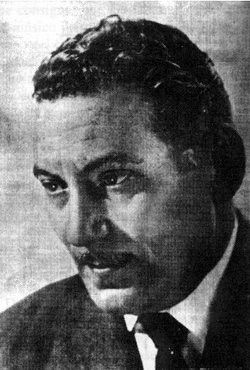
Alberto Amado Ribero, known professionally as Tito Ribero, was an Argentine film score composer, composer, singer, and musician. In addition to having his own orchestra, he provided the film scores to over 200 movies, at his most prolific in the 1950s and 1960s. For Del otro lado del puente he won the Silver Condor Award for Best Original Score from the Argentine Academy of Cinematography Arts and Sciences in 1953.
Jorge Rivera López is an Argentine actor of television and film.
Víctor Hugo Caula was an Argentinian cameraman and director of photography, with extensive participation in the production of works.
Hugo Medrano is an Argentinian-born theatre director, playwright, and actor. He co-founded the GALA Hispanic Theatre in Washington D.C. with his wife Rebecca Read Medrano. The GALA Hispanic Theatre features Spanish and Latin American plays and has staged over 220 productions since its founding in 1976. Hugo Medrano serves as the theatre's Founding Producing Artistic Director. Along with directing Latino theatre, Medrano is an accomplished actor. He received the Helen Hayes Award for Outstanding Lead Actor for his role as Molina in El Beso de la Mujer Arana in 1994. Medrano's work with the Gala Hispanic Theatre has earned international acclaim. For his dedication to promoting Spanish culture in the United States, Medrano was bestowed the Order of Queen Isabella by Carlos I, former King of Spain.

Thelma Stefani was an Argentine actress, dancer and vedette.
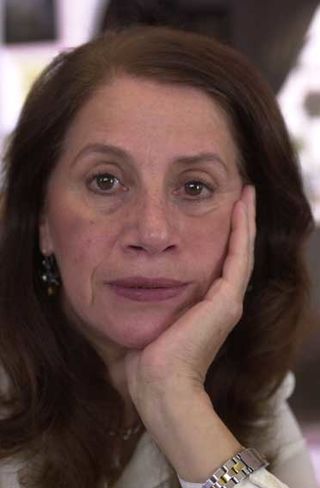
Marta Aura was a Mexican actress.















